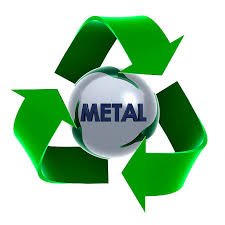How Technology is Transforming Industrial Scrap Metal Recycling
Looking for reliable metal recycling in Melbourne? Union Metal Recycling offers efficient, eco-friendly solutions for scrap metal collection, processing, and reuse. Contact us today!

Introduction
As industries continue to focus on sustainability and resource efficiency, industrial scrap metal recycling has become an essential practice. Advancements in technology are revolutionizing how metal waste is collected, processed, and reused. From automated sorting systems to AI-driven analytics, metal recyclers are leveraging innovation to enhance efficiency and reduce environmental impact. In this article, we explore the key technological advancements transforming industrial scrap metal recycling and how leading metal recyclers in Melbourne are adopting these innovations.
1. Automated Sorting and Separation
Traditional metal recycling relied heavily on manual labor to sort metals, which was time-consuming and prone to errors. Today, automated sorting technologies such as X-ray fluorescence (XRF), eddy current separators, and laser-induced breakdown spectroscopy (LIBS) are making the process faster and more accurate. These technologies help metal recyclers:
-
Identify and separate ferrous and non-ferrous metals with precision.
-
Reduce contamination in recycled metal batches.
-
Increase the overall efficiency of the recycling process.
With automated sorting, metal recyclers in Melbourne can process large quantities of scrap metal more effectively, ensuring high-quality material recovery.
2. Artificial Intelligence and Machine Learning
AI and machine learning are playing a crucial role in improving metal recycling operations. These technologies enable:
-
Predictive analytics to assess metal availability and optimize recycling schedules.
-
Real-time monitoring of metal recycling facilities to detect inefficiencies.
-
AI-powered robotics to automate scrap metal handling and processing.
By integrating AI-driven solutions, recycling companies can enhance productivity, reduce waste, and minimize human errors.
3. Blockchain for Transparent Transactions
One of the biggest challenges in industrial scrap metal recycling is ensuring transparency and traceability in transactions. Blockchain technology is addressing this issue by providing a decentralized and tamper-proof record of all recycling activities. Benefits include:
-
Secure transactions between suppliers and metal recyclers.
-
Accurate tracking of recycled metal from collection to resale.
-
Elimination of fraud and illegal metal trading.
With blockchain, metal recyclers in Melbourne can build trust with clients by providing verifiable recycling records.
4. Advanced Shredding and Processing Equipment
The latest shredding and processing equipment is designed to handle large volumes of industrial scrap metal with greater efficiency. Innovations include:
-
High-speed metal shredders that break down large scrap items into smaller, manageable pieces.
-
Energy-efficient furnaces that melt metals using less power and lower emissions.
-
Electromagnetic separators that extract valuable metals from mixed scrap.
These advancements allow metal recyclers to recover more material while minimizing environmental impact.
5. Internet of Things (IoT) in Recycling Plants
IoT is revolutionizing the way recycling plants operate by enabling real-time data collection and remote monitoring. IoT-enabled devices can:
-
Monitor machine performance to reduce downtime.
-
Track waste levels in bins to optimize collection schedules.
-
Analyse energy consumption to improve sustainability efforts.
By adopting IoT solutions, metal recyclers in Melbourne can improve efficiency, lower costs, and enhance operational safety.
6. Eco-Friendly Recycling Innovations
Sustainability is a top priority for modern recycling facilities. Technological innovations are helping reduce the environmental footprint of industrial scrap metal recycling. Some key advancements include:
-
Hydrometallurgical processing, which uses eco-friendly solutions instead of harmful chemicals to extract valuable metals.
-
Carbon capture technologies to reduce emissions from metal smelting.
-
Renewable energy-powered recycling plants that lower reliance on fossil fuels.
By implementing these sustainable solutions, metal recycling facilities can contribute to a greener future.
Conclusion
Technology is transforming industrial scrap metal recycling by improving efficiency, transparency, and sustainability. From AI-powered sorting systems to blockchain for secure transactions, these innovations are helping metal recyclers in Melbourne stay ahead in an increasingly competitive industry. As advancements continue, the future of metal recycling will become even more efficient, eco-friendly, and economically viable.
If you’re looking for a reliable metal recycler in Melbourne, choose a company that embraces the latest technology for superior results. Contact a trusted recycling service today to contribute to a more sustainable future!
What's Your Reaction?
















.jpg)
.jpg)


